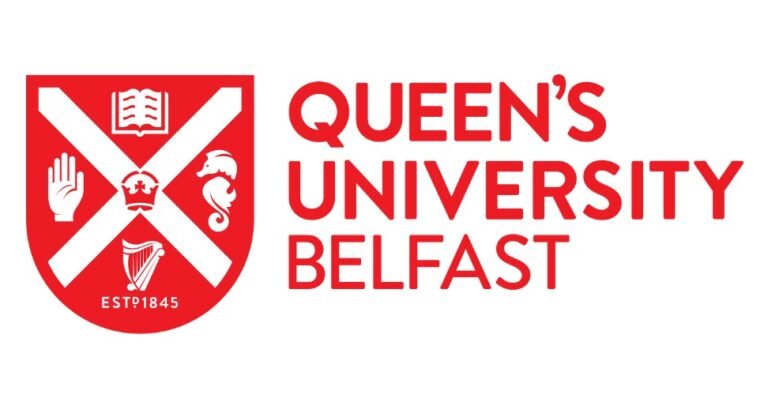Overview
Cardiovascular disease is a significant cause of death and disability across the world. According to the British Heart Foundation, approximately 24% of deaths in Northern Ireland have cardiovascular diseases as a cause. Vascular structures can vary widely between individuals and this can significantly impact their chances of survival. In this project, you will develop and execute high resolution 3D models for blood flow in personalised vascular domains. This PhD will seek to address gaps in traditional approaches for simulating vascular flows and propose simulation tools that can help further understand the pathology of cardiovascular disease.
With the continued development of computational tools and resources, the concept of digital twins are more widely being deployed in engineering settings. Here a digital replica of a physical object is used to make predictions about its operational characteristics, maintenance requirements and performance optimisation. In the biomedical context, the concept of a virtual human twin seeks to offer similar benefits for the treatment of individual patients. Fundamental to this is the ability to generate reliable and personalisable simulations of a particular component of an individual’s physiology. Under the supervision of Dr Jon McCullough (lead) and Professor Ben Thornber (secondary), this project will focus on advancing the state-of-the-art in 3D vascular simulations for the study and understanding of cardiovascular diseases such as stroke or deep vein thrombosis. Such a model would have the potential to be utilised for greater clinical understanding of cardiovascular diseases and may be able to be coupled with other simulation models (e.g. heart or lungs) to build a larger virtual human twin.
Objectives:
Development of a validated, personalisable simulation tool for the study of cardiovascular disease.
Utilisation of the developed tool to develop insights into the factors impacting cardiovascular disease.
Interaction with clinical experts to ensure that the tool provides information relevant to the diagnosis/treatment of cardiovascular disease.
Efficient utilisation of modern computational fluid dynamics – high performance computers, modern CPU/GPU architectures, visualisation and analysis tools and software.
KEY TRANSFERABLE SKILLS
Code development (esp. for scientific simulation) – this PhD will require and develop skills in C++ and Python as well as understanding of open-source frameworks. You will execute your simulations on high-performance computers. Working with code for GPUs is possible.
Data management and analysis – computational simulations can generate large volumes of data that need to be effectively managed, analysed and visualised.
Communication and presentation skills – throughout your PhD you will summarise and present your findings to both expert and general audiences. You will disseminate your work in leading international journals and conferences.
IMPACT AND FUTURE CAREER PROSPECTS
Academic and industry applications of computational fluid dynamics are widespread in engineering including aerospace, wind turbines, battery design, power stations, industrial processes, aerosol dispersal, natural disasters, weather, and astronomy. This PhD will develop analytic, numerical, computational and project management skills that are sought after in many such employment settings. Although you will be immersed in the biomedical setting of your work, the skills will be transferrable to many other domains both as a postdoctoral or industrial researcher or in industry e.g. software engineering, consultancy (particularly, but not limited to, computational fluid dynamics).
INNOVATION AND INTERDISCIPLINARITY
This PhD will seek to benefit the medical domain through the use of engineering tools and analysis. You will make use of advanced tools for computational fluid dynamics and the analysis/visualisation of its output to effectively communicate your research outcomes. Discussions with clinical practitioners will help to ensure your work is relevant and useful to those working with patients with cardiovascular disease. Access to nationally, and possibly internationally, leading supercomputers using both CPU and GPU computations will form a foundation to the work and enable faster, more detailed and more personalised simulation results to be obtained.
Funding Information
UK studentships – cover tuition fees and include a maintenance stipend of £19,237 per annum, together representing an investment in your education of more than £70,000.
A UK studentship is open to UK and ROI nationals, and to EU nationals with settled status in the UK, subject to meeting specific nationality and residency criteria.
DfE studentship eligibility information can be viewed at: https://www.economy-ni.gov.uk/publications/student-finance-postgraduate-studentships-terms-and-conditions
Entrance requirements
Graduate
The minimum academic requirement for admission to a research degree programme is normally an Upper Second Class Honours degree from a UK or ROI HE provider, or an equivalent qualification acceptable to the University. Further information can be obtained by contacting the School.
International Students
For information on international qualification equivalents, please check the specific information for your country.
English Language Requirements
Evidence of an IELTS* score of 6.0, with not less than 5.5 in any component (*taken within the last 2 years) is required.
International students wishing to apply to Queen’s University Belfast (and for whom English is not their first language), must be able to demonstrate their proficiency in English in order to benefit fully from their course of study or research. Non-EEA nationals must also satisfy UK Visas and Immigration (UKVI) immigration requirements for English language for visa purposes.
For more information on English Language requirements for EEA and non-EEA nationals see: www.qub.ac.uk/EnglishLanguageReqs.
If you need to improve your English language skills before you enter this degree programme, INTO Queen’s University Belfast offers a range of English language courses. These intensive and flexible courses are designed to improve your English ability for admission to this degree.



